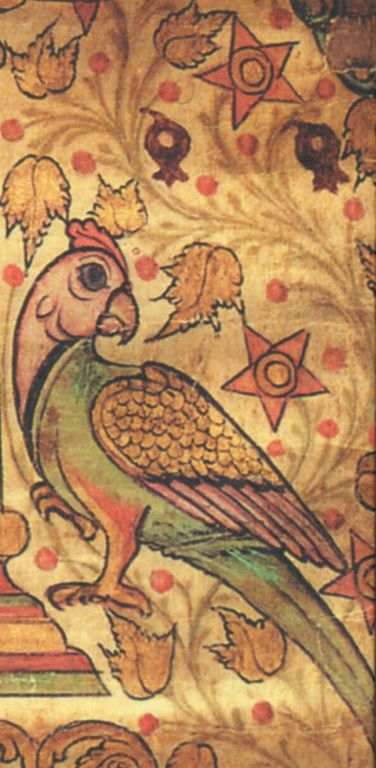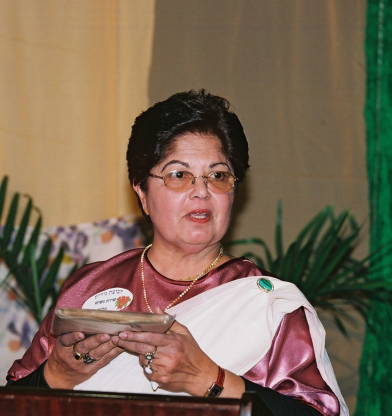1977
65. Each and Every Day
Ruby S. Hallegua. Recorded by Barbara Johnson, Kochi, January 2, 1977. CD Track 33; IV-27.
Orě divasaṃ, orě divisaṃ, orě divisaṃ ěllāṯṯil
Ādamāya sādhakaně ninně ñān stutikkunne
1. Every day, every day, oh each and every day,
O God from the beginning, I am praising You each day.2. O my Savior, O my Savior, O my Savior full of power,
Protect me from my enemies; protect me, steadfast God. (x2)[1]3. Look upon me, look upon me, O Thou merciful One.
Please show me my salvation by granting help to me.4. Contentment, oh contentment, contentment grant to me.
Oh, please relieve my mind, which is melting with grief.5. O most Holy, O most Holy, O the One Who is Supreme,
With utmost love I praise You—Your devoted praise I sing.6. Don’t offend me, don’t insult me, don’t look at me with scorn,
O God my Protector, the great and steadfast One.
Found in thirteen different notebooks from Kochi, Parur, Chendamangalam, and Ernakulam, this popular devotional song is a Malayalam version of the Hebrew piyyut Yom Yom Odeh—“Each and Every Day” (’Areshet 1980, 389). Its opening phrase (and title) echoes a piyyut from the Baghdadi tradition,[2] but the rest of the Hebrew song may be unique to Kerala. Though not a direct translation, the Malayalam song includes concepts from the Kerala Hebrew piyyut and follows its melody and its musical poetic structure of repeating the same phrase over and over—a style that Zacharia found to be uncharacteristic of Malayalam poetry (Jerusalem, July 2001) and that Seroussi also refers to as foreign to the structure of Hebrew piyyutim (2000a, 245). The song also names many different attributes of God, not all of them common to the rest of the Malayalam Jewish songs repertoire.
Another interesting aspect of this song is its melody, recognizable to Americans as a variant of the American folk song “Oh My Darling Clementine,” perhaps transmitted to Kerala through the English colonial presence. It is also possible that the melody first came to Kerala by way of a widely known Malayalam Christian song, Samayamām Radhatil (“In the Chariot of Time”), which was composed in 1904 in Malayalam by Father Volbracht Nagel, a German Protestant missionary, and set to a tune very similar to “Clementine.”[3] This shared melody has been pointed out to me on at least three occasions by Kerala Christians interested in the Jewish songs.
Immediately following Yom, Yom Odeh in ’Areshet (1980, 390) is the Hebrew song Yeḥi Melekh (“Long Live the King”), composed to the same tune in honor of the Kochi ruler Maharaja Rama Varma and sung for him on ceremonial occasions.[4] When Rivka Yehoshua of Parur emigrated to Israel, she adapted the words of this Malayalam song to create a Hebrew song, Yeḥi Nasi (“Long Live the President”) and taught it to her daughter, who sang it in honor of then-president of Israel Yitzhak Navon (interview in Moshav Aviezer, July 2, 1995).
________________________________
[1] In this recording, the Paradesi-Kochi singer repeats the second line of stanza 2.
[2] The Babylonian piyyut is associated with the holiday of Shavuot. I was also told by the late Sassoon Roby that the Kochini piyyut is sung on Shavuot (personal conversation, 2003).
[3] The award-winning Malayalam film Ara Nāḻika Neram (1970) popularized the Christian song throughout Kerala. To see the scene in which this song was performed, visit https://www.youtube.com/watch?v=boInIgfDKTQ (accessed May 2, 2022). About Fr. Nagel, see: http://en.wikipedia.org/wiki/Volbrecht_Nagel.
[4] The name of King Rama Varma appears in the first stanza of the Hebrew piyyut. There were four rulers of Cochin State with this name between 1869 and 1941: Rama Varma XIV, XV, XVI, and XVII. http://www.worldstatesmen.org/India_princes_K-W.html#Kochin (accessed May 2, 2022).






